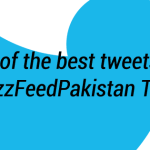Have you wondered how much data you transfer every day? All the data you transfer pass through servers located in different parts of the world, It is then stored in clusters of web servers in the shape of unstructured data. All this unstructured data is known by a term called ‘Big Data’. According to IBM, ‘big data have a large volume, high velocity and is available in a wide variety’.
Technologists around the world are predicting that big data can be used for productive purposes if it is structured properly. Technological giants like Google, IBM, Apple and even governments like USA, Germany and Russia have even started investing billions in this regard.
To name a few gains, big data can help in all sorts of industries including health, education, transport and national security. Most of us are familiar with Edward Snowden’s statement that USA is making a national database for security purposes with the help of the National Security Agency. Moreover, USA also has ample data available in healthcare and education sector. It is also a known fact that USA is recruiting data scientists from across the globe for this same purpose. In short, they are doing whatever they can, to structure that data properly and use it for their sake.
Apart from USA, Europe, Australia and even our neighbor India are working on many projects like digitizing government data and improving Healthcare across the country.
In Pakistan, however, we do not have appropriate data available. The data we have available lacks digital format. Only NADRA has a digital database that we can say is some sort of structured data. However, NADRA also has limitations, as it does not cover data from education or healthcare sectors. Moreover, most of the criminal data is also not archived by the law enforcers.
This brings us to a question, what will happen if we digitize all this data?
In the education sector what we have available is all because of the research studies conducted by NGO’s. Here in Pakistan, government does not have any national education database where record of each student is available. All government universities keep their records but these are not shared with others. If a system is implemented to share all the data and use some data centric language to structure it, the data can help us know the overall progress and the type of courses that interest students. With that sorted out, education institutions will be able to utilize the given funds on those types of courses and research centers.
The transport sector has always lingered problematic in Pakistan. Using data stats will not only make it less congested, more public friendly, punctual but also save fuel and raise revenues. Not only in transport, but also if data stats are garnered from traffic sensors, traffic congestion on roads can be sought and alternate routes can be fed in GPS counters of the automated cars this will result in minimization of traffic jams.





 BuzzFeedPakistan is Trending….and We Love it!
BuzzFeedPakistan is Trending….and We Love it!
Comments are closed.